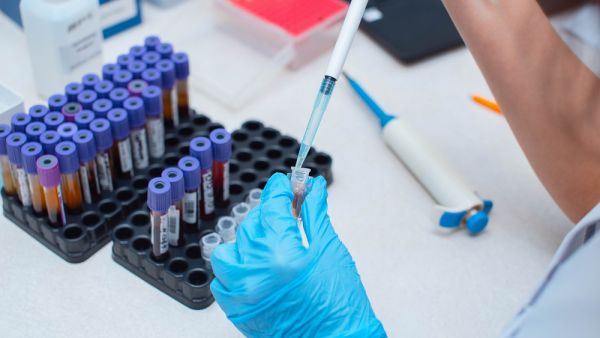ALBAWABA In a significant stride towards early cancer detection, researchers have developed an innovative AI-powered test capable of identifying three major types of cancer using just a single spot of dried blood.
Preliminary experiments demonstrate its potential to accurately distinguish between patients with pancreatic, gastric, or colorectal cancer and those without, with results delivered in a matter of minutes.
The breakthrough test relies on machine learning, a form of artificial intelligence, to analyze metabolites present in blood samples.
These metabolites, found in the serum, serve as biomarkers indicative of cancer presence within the body. This approach offers a promising avenue for diagnosing cancer at its earliest stages when treatment outcomes are most favorable, and symptoms may not yet be apparent.
Currently, pancreatic, colorectal, and gastric cancers lack standalone blood tests with sufficient accuracy for diagnosis, relying instead on imaging or invasive procedures.
However, the new test, described in a paper published in the journal Nature Sustainability, could potentially change this paradigm by offering a less invasive and cost-effective alternative.
Dr. Chaoyuan Kuang, an assistant professor at the Albert Einstein College of Medicine and an oncologist at Montefiore Health System, highlights the advantages of using dried blood, noting its ease of collection, storage, and transport compared to liquid blood.
This aspect could democratize access to cancer screening globally, making early detection more accessible.
Despite its promise, widespread implementation of the new test is likely years away. Validation through extensive clinical trials and regulatory review is necessary before it can be made available to patients.
Furthermore, while the initial study shows promising results, further testing in diverse populations is required to assess its reliability across different groups.
Dr. Michael Cecchini, co-director of the colorectal program at the Center for Gastrointestinal Cancers at the Yale Cancer Center, underscores the importance of rigorous validation, emphasizing the need for large-scale clinical trials to evaluate the test's efficacy as a diagnostic tool.
The potential impact of the new test on cancer screening programs is substantial. Modeling studies suggest it could significantly reduce undiagnosed cases of pancreatic, gastric, and colorectal cancers if incorporated into population-level screening efforts, particularly in rural areas.
While the road to widespread adoption may be long, the development of this AI-powered blood test represents a promising step forward in the fight against cancer, offering hope for earlier detection and improved outcomes for patients worldwide.








